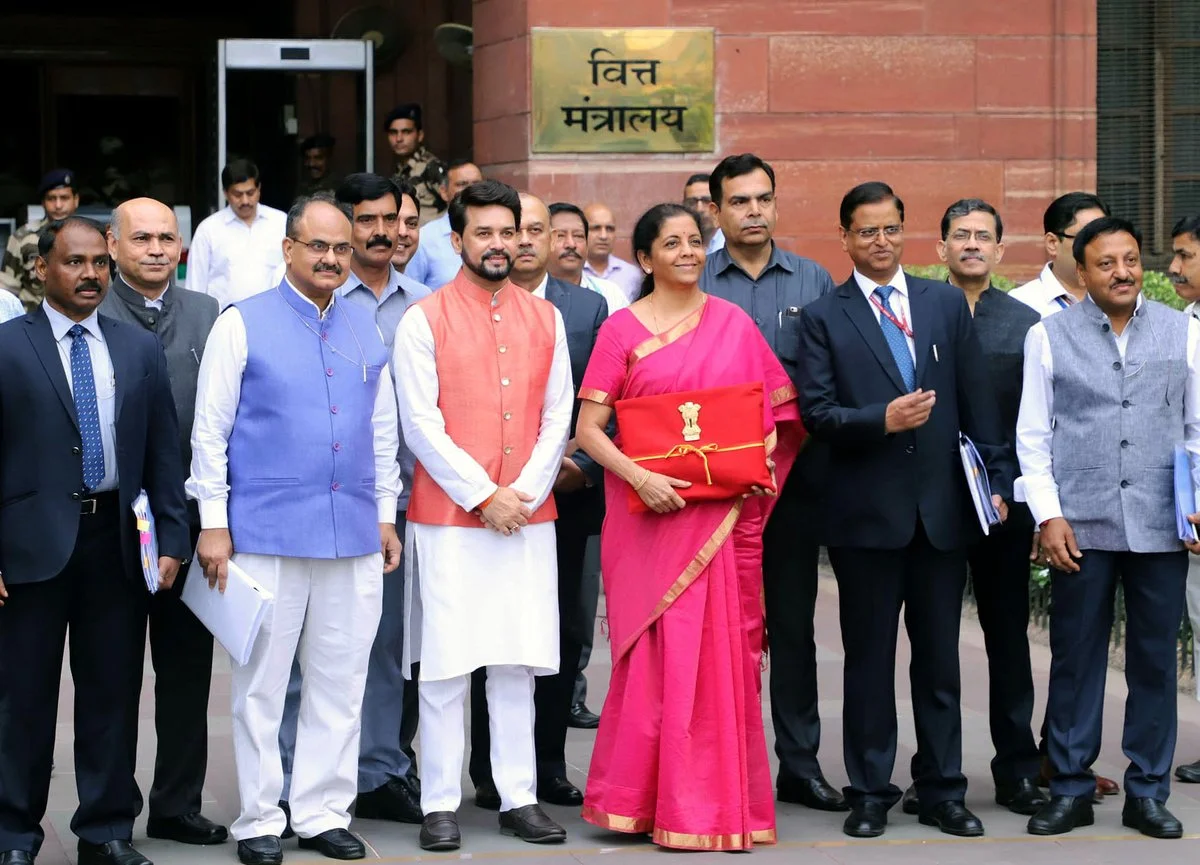Real Estate has reasons to cheer thanks to various SOPS announced in favour of affordable Housing and Buyers
Finance Minister Nirmala Sitharaman's Union Budget 2019 proposals have been welcomed by the real estate sector as affordable home buyers and real estate developers will stand to benefit from it.
Most real estate developers and builders are of the opinion that the incentives offered to the real estate sector would help the sector. Dr. Niranjan Hiranandani, National President at Naredco said, "The budget will provide a further boost to the housing sector and infrastructure sector asthe initiative to promote rental housing and housing for all by the year 2022 would be highly successful. The government's proposal to invest more than Rs 100 lakh crore for infrastructure over the next 5 years is also a welcome move.

The government's idea to provide affordable housing will be a possibility in almost all the cities except Mumbai where there is a paucity of land. I believe that the additional incentive of Rs 1.5 lakh on interest on loans borrowed under the affordable housing would give a boost to the real estate sector further". This proposed additional interest deduction on a home loan of up to Rs 30 lakhs on home loans borrowed up to March 31, 2020,will take the total interest deduction to Rs 3.5 lakhs while translating into a benefit of Rs 7 lakhs for borrowers, for a 15 year period of home loan.
Additionally the government plans to build 19.5 million rural houses in the second phase of its "Housing for All" programme. In the last five years, the government has built 15 million rural houses.
The liquidity crisis of NBFC has also been given due diligencewith the Government allowing FII's and FPI's to invest in their debt papers alongside a one-time, six-month partial credit of Rs 1 lakh crore to PSB's for the purchase of high-rated NBFC assets. This will prove to be a positive step in resolving the liquidity crisis faced by NBFC's in the recent past and will help ensure the revival of lending activity, as well as ensure the sustained flow of capital.
Other key reforms that will impact the real estate industry includes the further development of the 'Affordable Housing for All' initiative, with a fund of 4.83 lakh crore sanctioned for the construction of 84 lakh houses under the Pradhan Mantri Awas Yojna.

Today, the overall share of rental housing in Indian residential real estate segment is anywhere between 35-45 percent. As per IMF's last estimate two years ago, India's residential rental market was worth more than US $20 billion, comprising $13.5 billion in urban areas, $0.8 billion in rural areas, and $5.7 billion of vacant non-resident Indian property brokerage.But this market is still highly fragmented and disorganized.
A national urban rental housing policy has been in the pipeline ever since the Modi government assumed charge in 2014. The first draft was put out in public domain in October 2015 and sought to promote various types of public-private partnerships for promotion of rental housing in the country and making good the growing housing shortage as a result of increasing urbanization.The aim of this policy was to bring 11 million vacant unsold houses onto the rental market, to further encourage demand and reduce housing shortage. Finance Minister Nirmala Sitharaman in her budget mentioned that "Several reforms would be undertaken to promote rental housing as the current rental laws are archaic and they do not address the lessor-lessee relationships fairly. The Model Tenancy Law will be finalized shortly and circulated to states."
Hailing it as a boost to the sector, developers are expecting that this will be a game changer for them in the future.The new Model Tenancy Act will balance the rights and responsibilities of both, landlords and tenants thereby making the rental market more efficient and streamlined across the country.
In addition to the proposal of Rs 100 lakh crores for infrastructure development in the next five years an investment of Rs 80,250 crores for the up-gradation of roads has also been allocated which is a much-needed move and will help in improving the infrastructure of the country.
A change of guard from NHB to RBI has also been announced in this budget. "While the RBI may not have directly regulated HFCs earlier, banks contribute 58 per cent of housing finance (HFCs) originations anyway. So, uniform sectoral regulation can have benefits," says Mahesh Misra, CEO, India Mortgage Guarantee Corporation. He goes on to add that smooth operational transition will be key, given that several HFCs are newly incorporated and any slippages in an already tight environment could prove adverse. The NHB will however continue to play a vital promotional role in the revival of the real estate industry.
Overall the consensus is that this budget has a lot of positives for the real estate industry.
Image source www.ddnews.gov.in


